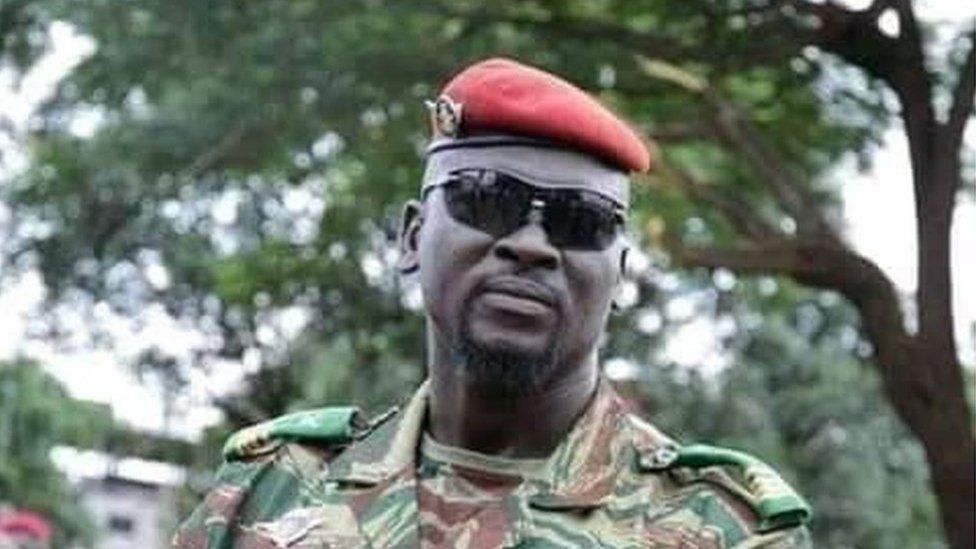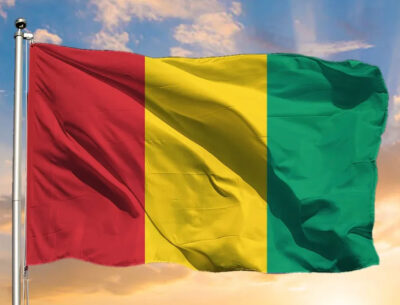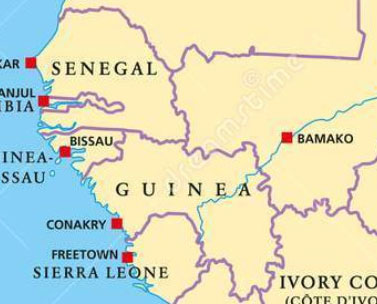In Guinea, on the Atlantic coast of West Africa, LGBTI citizens must cope not only with homophobia but also with the new uncertainties of life after a military coup.

Mamady Doumbouya, a 41-year-old army colonel, seized power in Guinea on Sept. 5, saying that the coup was needed to put an end to corruption, human rights abuses and economic mismanagement. (Photo courtesy of the BBC)
The coup in Guinea came in early September, only a few months after a military junta seized power in neighboring Mali. That turmoil added new challenges for LGBTI citizens in those nations and in neighboring Senegal.
To gauge the effects of those events, journalist Moïse Manoel interviewed LGBTI rights activists in three French-speaking countries — Senegal, Guinea and Mali — about the difficult situations that LGBTI people face there. In English translation, the second of those interviews, about Guinea, is published below.
“As elsewhere, social networks are … used to entrap young, unwary gays”

Flag of Guinea
Ousmane Sané (pseudonym):
“In Guinea, homosexuality is penalized. The provisions of Article 325 of our penal code stipulate that ‘any indecent or unnatural act committed with an individual of the same sex will be punished by imprisonment of 6 months to 3 years and a fine of 100,000 to 1,000,000 Guinean francs.’
During the time of recently deposed President Alpha Condé [2010 to 2021], there was already a great deal of stigmatization associating LGBTI people with a Western imperialist agenda, supposedly desired and imposed by France and the United States. In addition, the preaching of some imams makes conspiracy theories very viral here. The preaching in some places of worship is uncontrolled, though one should not generalize.
As an activist, I do not see a resurgence of Islamic fundamentalism in Guinea. Although fundamentalists are visible in the public space, religious radicalism has not found fertile ground here. Guineans are generally quite cautious about political Islam. Those who choose to embrace the most rigorous Islam are generally supported from abroad. Moreover, in Conakry, on the coast, we are a bit distant from what is occurring in the Sahel. [For example, Islamic terrorism in Mali, Burkina Faso, Niger and northern Nigeria and the military coup in Mali.]

Map of the coast of West Africa shows the locations of Senegal and Guinea. Mali borders Guinea on the northeast.
However, on a day-to-day basis, life for LGBTI people is far from simple in Guinea, as the criminalization of homosexuality allows law enforcement officials and bandits to blackmail and extort citizens on the basis of their sexual orientation. As elsewhere, social networks are all too often used to entrap young, unwary gays. Nevertheless, while the situation for LGBTI people is very tense in some cities in the interior of the country, such as Kankan, in Conakry, the capital, things are calmer.
In the wake of the coup d’etat of Sept. 5, we ask LGBTI people, like the rest of the Guinean population, to be discreet and to go home before 6 pm. The reasons for this coup are still unclear. This is another blow to civil society and, more than others, we must stay away from unrest. However, we have no idea when the democratic process will resume.
Related article:
COMMENTS